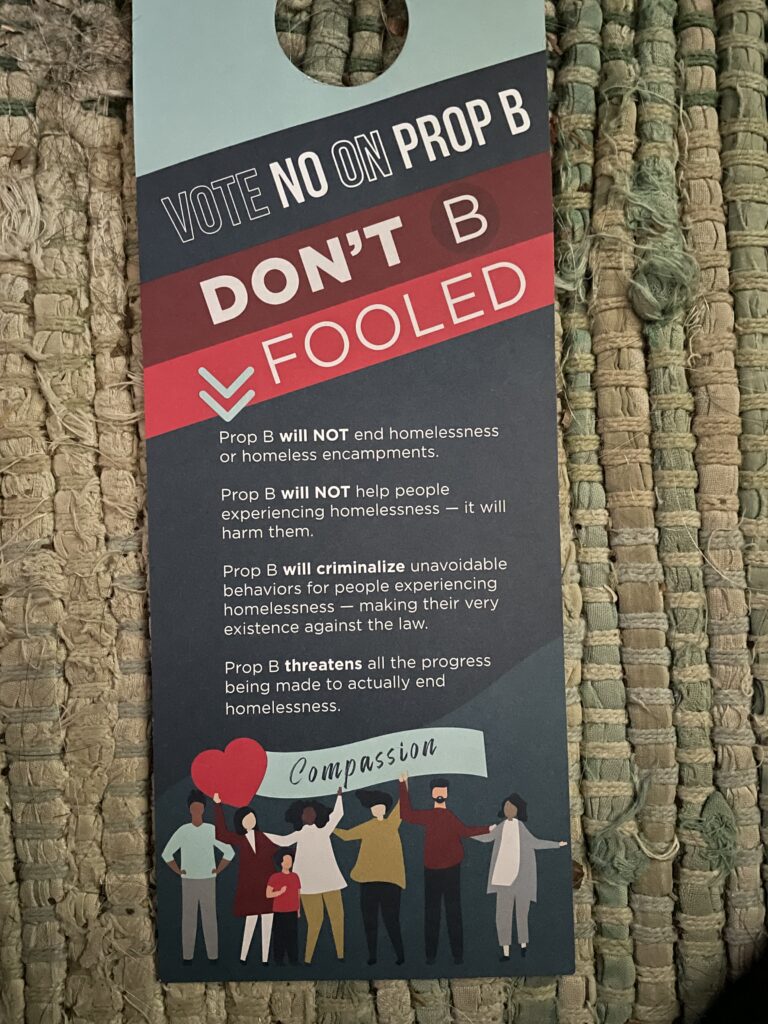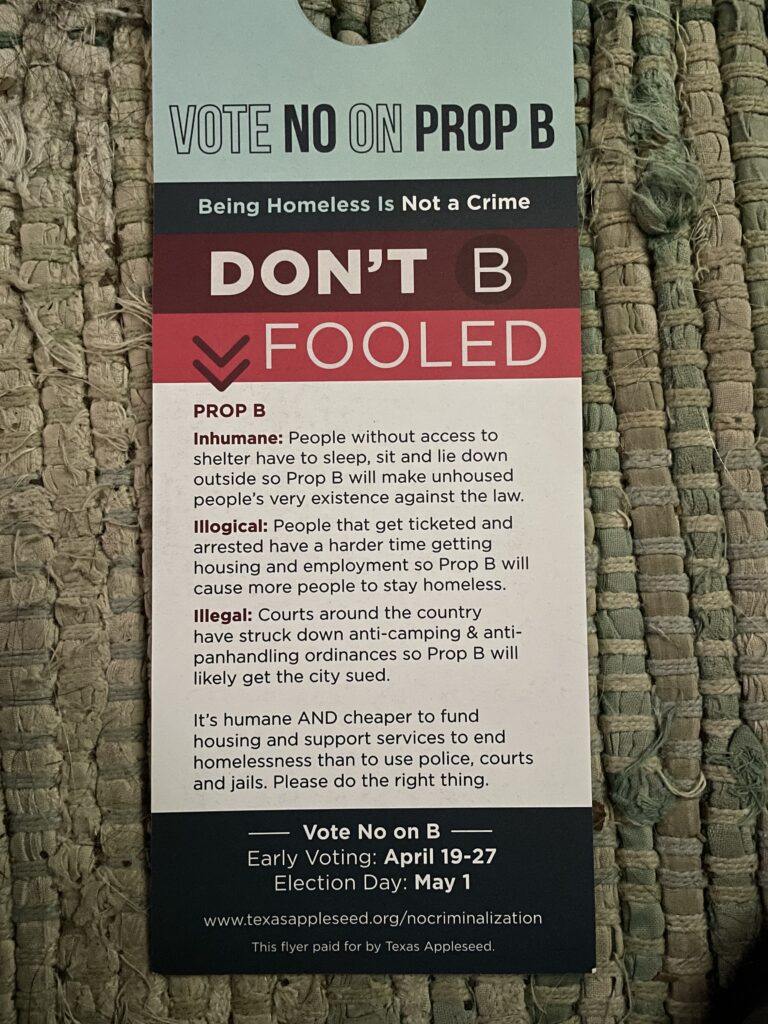All Austin voters have a choice to make in the coming weeks. The Ending Community Homelessness Coalition (ECHO) is asking you to make the humane, evidence-based, right choice: Vote NO on Prop B.
Prop B would make it a crime for people living in extreme poverty to sit down and rest, to live in a tent when they have no other option, and even just to ask for assistance to meet their basic needs.
It would not help unhoused Austinites access housing.
It would not help our neighbors find new shelter space in a system that’s already at capacity.
It would not create or fund any new programs to help our neighbors experiencing homelessness rebuild the safe, stable foundation people need to be able not only to thrive but also to weather life’s storms.
Criminalizing the actions a person takes in order to survive under unimaginable conditions is the same as criminalizing that condition. Prop B criminalizes many of the actions a person experiencing homelessness may need to take in order to survive. Therefore, Prop B criminalizes homelessness.
Homelessness is unacceptable in such a wealthy city in the wealthiest country on the planet. We can do better to provide human services rather than punitive responses to people experiencing homelessness. No one wants to see our neighbors – the majority of whom were housed in the Austin area before falling into homelessness – forced to live in unsafe, unstable conditions on sidewalks and under overpasses. But forcing people instead to hide in the woods or creek beds where we don’t have to see homelessness is not a solution. The solution is housing. Criminalizing homelessness will neither serve those in need, nor will it scale up housing to meet the need.
In fact, Prop B would actively make ending homelessness more difficult. Under these proposed ordinances, unhoused Austinites would receive more and more citations and fines. Almost 3 in 5 citations turned into arrest warrants between 2015 and 2018, according to KUT, because people couldn’t pay, get to court, or receive mail requesting payment or a court appearance in the first place. Those warrants negatively impact credit scores and show up on apartment and employment screenings, further complicating people’s efforts to get back on their feet. Prop B is not a solution; it only creates additional barriers for people striving to exit homelessness.
Recriminalizing homelessness would also have a disproportionate impact on our Black neighbors experiencing homelessness. Centuries of racism and inequities in our systems, including housing, healthcare, education, criminal justice, and employment have led to what we see in our homeless response system today: A Black Austinite is at least 4.8 times more likely than a white Austinite to experience homelessness. Black people make up more than 1 in 3 people experiencing homelessness in Austin, but less than 1 in 10 people in Travis County’s population. By contrast, non-Hispanic whites make up 33 percent of people experiencing homelessness; and Latinos, 25 percent of the total population experiencing homelessness. Asians, Native Americans, Pacific Islanders, and those who are multi-racial make up the remainder.
About 1 in 4 people booked into the Travis County jail is Black. Creating additional criminal offenses for people who are unsheltered will disproportionately impact unhoused Black people, potentially resulting in increased rates of incarceration and, too often, returns to unsheltered homelessness with fewer prospects to access safe, stable housing. Criminalizing homelessness makes both our homeless response and criminal justice systems not only more inequitable but more inhumane.
We know from decades of research that the first step toward ending someone’s homelessness is a home. Our current system simply doesn’t have enough housing for everyone in need. ECHO and our community partners work every day to increase investments in and access to safe and affordable housing and supportive services to provide more of our neighbors with the stability needed to build a solid foundation. Our local, state, and federal partners must prioritize safe and affordable housing programs and fund these resources at levels that will make a real difference for our unhoused neighbors. These are the real solutions we need our community to rally around.




